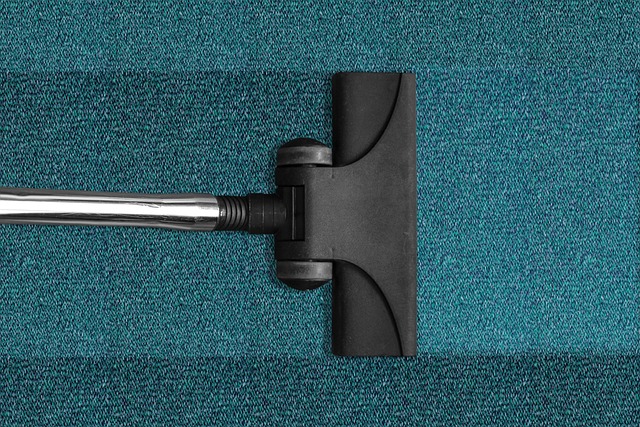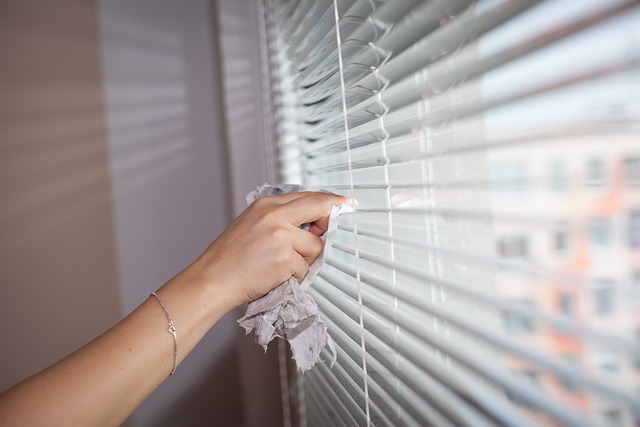This text offers comprehensive guidance on cleaning grout using natural solutions, addressing various discoloration causes and stains. It distinguishes between surface and deep-set issues, recommending tailored approaches. Natural methods include mild bleach, vinegar, baking soda, essential oils, and vinegar-baking soda paste for effective stain removal without harsh chemicals. Regular sealing and preventative maintenance with tools like vacuums and mild cleaners prolong grout lifespan. For severe cases, professional help is advised to ensure thorough cleaning and long-lasting repairs.
Tired of seeing discolored, stained grout in your once-pristine tiles? Discover natural solutions for cleaning dirty grout and restore your space. This comprehensive guide explores the causes and types of grout discoloration, from mold and mildew to calcium deposits. We’ll show you how to tackle stains with DIY cleaners, essential oils, vinegar, and baking soda. Learn effective preventative measures like sealing and when to seek professional help for severe grout damage. Revive your tiles naturally!
Understanding Grout Discoloration: Causes and Types

Grout discoloration is a common issue that can detract from the overall appearance of tiled surfaces, but understanding its causes and types is key to effective prevention and cleaning. Over time, grout can become discolored due to various factors such as exposure to water, mold growth, dirt accumulation, and even UV rays from sunlight. These factors can lead to stains ranging from yellow and brown hues to unsightly green or black marks.
There are two primary types of grout discoloration: surface stains and deep-set damage. Surface stains are often caused by spills, hard water deposits, or general debris buildup, while deep-set damage results from penetration of moisture and subsequent decomposition of the grout material itself. When it comes to natural solutions for cleaning dirty grout, addressing these causes differently is crucial. For surface stains, a combination of mild bleach, vinegar, and baking soda can be effective, whereas deeper issues might require more intense treatments or even professional intervention.
The Benefits of Natural Grout Cleaning Solutions

Using natural solutions for cleaning dirty grout offers numerous benefits, especially in maintaining a healthy and eco-friendly environment. Unlike traditional chemical cleaners that can be harsh and potentially harmful to both your family and the planet, natural alternatives are gentle yet effective at removing dirt, stains, and grime from grout lines. These solutions often contain powerful yet organic compounds derived from plants or other natural sources, ensuring minimal environmental impact.
Moreover, natural grout cleaning methods contribute to a more sustainable approach to home maintenance. They help preserve the longevity of your tiles by preventing damage caused by aggressive chemicals. With regular use, you’ll notice improved aesthetics, enhanced air quality indoors, and reduced exposure to toxic substances. This simple yet effective switch to natural solutions allows you to keep your spaces clean while promoting a greener lifestyle.
Effective DIY Natural Grout Cleaners

Maintaining clean and fresh-looking grout between tiles is a common challenge for many homeowners. Fortunately, there are effective DIY natural grout cleaners that offer an eco-friendly alternative to harsh commercial products. Natural solutions for cleaning dirty grout not only help to restore the aesthetic appeal of your tiled spaces but also ensure a safer, healthier environment.
One popular natural grout cleaner is baking soda and vinegar. Combining these two common household ingredients creates a powerful yet gentle cleaning agent. Create a paste by mixing baking soda with water and apply it directly onto the grout. Then, add white vinegar to create a fizzing action that helps to break down dirt and grime. This simple, effective method leaves your grout sparkling and free from unpleasant chemical residues.
Essential Oils for Grout Refresh

In search of a natural solution for cleaning dirty grout? Essential oils offer an effective and eco-friendly approach to achieving a refreshed, revitalized look. These potent natural compounds have antimicrobial properties that help eliminate bacteria and mold buildup, common issues in grout. Additionally, their aromatic benefits can transform your space with pleasant scents, enhancing the overall ambiance.
For optimal results, consider using oils like tea tree oil or citrus extracts. Tea tree oil’s powerful antibacterial and antifungal qualities make it ideal for deep cleaning, while citrus oils’ acidic nature assists in breaking down grime and stains. Incorporating these essential oils into your grout cleaning routine provides a healthy, natural glow without harsh chemicals, ensuring a safer environment for both you and your family.
Vinegar: A Common Household Ingredient for Grout Care

Many people turn to natural solutions for cleaning dirty grout, and one commonly used household ingredient is vinegar. This versatile acid is an effective cleaner due to its ability to dissolve mineral deposits and grease that can build up in grout lines over time. By mixing equal parts water and white vinegar, you create a simple yet powerful cleaning solution.
Spraying this mixture directly onto the grout and letting it sit for a few minutes before scrubbing with a soft-bristled brush will help restore the grout to its original condition. Vinegar’s natural acidity safely breaks down dirt and grime without leaving behind harsh chemicals, making it an eco-friendly choice for maintaining clean and fresh-looking grout in your home.
Baking Soda Blasts Away Stains

When it comes to tackling stained grout, a simple and natural solution is baking soda. This household staple is an effective cleaner that can blast away dirt and grime without harsh chemicals. By creating a paste with baking soda and water, you can gently scrub away stains on your grout lines. The mild abrasive nature of baking soda helps to remove any built-up residue or discolouration, leaving your grout looking fresh and clean.
It’s an eco-friendly approach to maintaining the cleanliness of your space as it offers a natural solution for cleaning dirty grout. This method is gentle yet powerful, ensuring that your grout lines are thoroughly cleaned without causing any damage or leaving behind harsh residues.
Preventative Measures: Sealing and Protecting Your Grout

Maintaining grout in good condition is essential, as it not only enhances the aesthetic appeal of your tiles but also prevents water and dirt from seeping into the tiny gaps. One of the most effective preventative measures is regular sealing. Sealing your grout with a high-quality, waterproof sealer creates a protective barrier that repels moisture and dirt, keeping your grout lines clean for longer periods. This is particularly important in areas prone to humidity or frequent water exposure, like kitchens and bathrooms.
Natural solutions for cleaning dirty grout can also be employed as part of your preventative maintenance routine. Regular vacuuming with a brush attachment helps remove loose debris, while mild, natural cleaners like baking soda and vinegar are effective in tackling tougher stains without damaging the grout or surrounding tiles. Preventative measures such as these ensure that your grout remains not just clean but also protected from the elements, prolonging its lifespan and keeping your space looking fresh and tidy.
When to Seek Professional Help for Severe Grout Damage

If your grout is severely damaged or discolored, and home remedies like baking soda and vinegar cleanings have proven ineffective, it might be time to seek professional help. Severe grout damage often indicates deeper issues, such as mold, mildew, or excessive water penetration. These problems require specialized knowledge and equipment for proper inspection and repair.
Professional grout cleaners have access to advanced tools and natural solutions for cleaning dirty grout. They can identify the root cause of the damage and offer long-lasting solutions that not only restore the grout’s appearance but also prevent future deterioration. This is particularly important in spaces with high foot traffic or those prone to moisture, like bathrooms and kitchens, where a quick fix might not be as durable as expert intervention.
